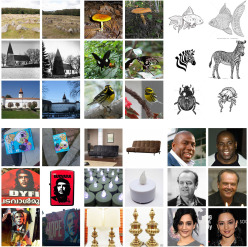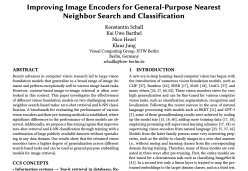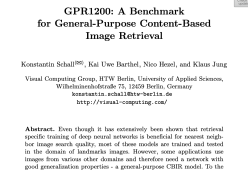
Number of Images: 12000
Number of Classes: 1200
Number of Subdomains: 6
Key Features
Domain-Rich Image Dataset: GPR1200 encompasses a diverse array of real-world domains, capturing a wide spectrum of content commonly encountered in photography. This includes landmarks, distinctive objects, diverse flora and fauna, commercial products, artistic sketches, and human faces. The dataset consists of a total of 1200 classes with 10 images for each class
Manual Image Curation: Although the GPR1200 dataset is derived from subsets of pre-existing datasets, meticulous manual selection was employed to prioritize solvability. Each class and image was carefully chosen to eliminate class overlap, ensuring that visually similar images are not grouped under different classes. Furthermore, all 10 images within each class were selected to consistently share distinct visual characteristics, minimizing the presence of intra-class outliers and enhancing the dataset's reliability.
Robust and Intuitive Evaluation Protocol: The GPR1200 dataset simplifies and strengthens the evaluation process with a clear and robust protocol. Unlike traditional evaluation datasets that require a query and database split, GPR1200 treats every image as a query, calculating the mean-average-precision (mAP) metric across all queries to derive the final result. This approach ensures consistent comparability across related research, while reducing the potential for confusion and complexity, making it easier for researchers to assess and benchmark performance.
How to Use GPR1200?
Download Instructions: The images are available under this link. Unzipping the content will result in an "images" folder, which contains all 12 000 images. Each filename consists of a combination of the GPR1200 category ID and the original name: "{category ID}_{original name}.jpg"
Evaluation Examples: This github repository shows how to evaluate the GPR1200 performance of your model.
License Information
This dataset is available for non-commercial research and educational purposes only and the copyright belongs to the original owners. If any of the images belong to you and you would like it removed, please kindly inform us, we will remove it from our dataset immediately. Since all images were curated from other publicly available datasets, please visit the respective dataset websites for additional license information:

